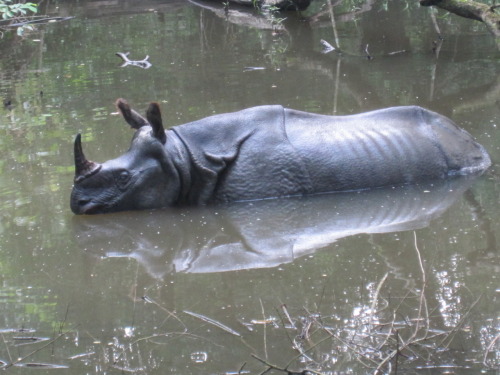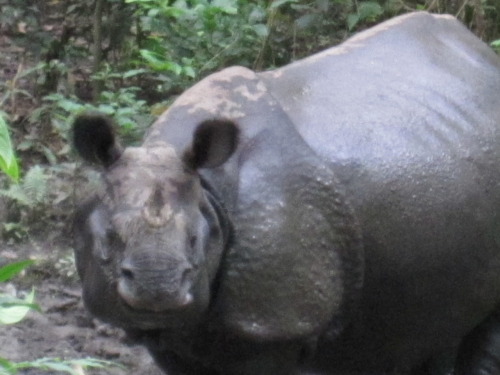Leave for Change Blogs
Many Leave for Change participants blog - often before, during, and after their volunteer assignment - capturing the diversity and richness of their volunteer experience, their reactions to being in a new country, how they navigate and negotiate their mandates, and the impact the whole experience has on them personally and professionally.
You can search blogs by person, country, or year. Enjoy!
Lessons Learned, Learning Lessons
It took me four days to learn the lesson here. When my partner Ramon and I were in Manila in March, it took only two days before we noticed we were walking too fast. I described the way people in the street in Manila walk as the « Philippino saunter ». It’s because of the heat and humidity. Here in Phan Thiet where the climate is identical, everyone looks as though they’re walking in slow motion. I should have clued in yesterday when I kept thinking, as I walked to the market, with my usual quick step and purposeful gait – how come I never perspire like this or feel faint when I’m on the street in Toronto ? There’s a saying in French : « I learn quickly, as long as you explain things slowly ».
In my conversations since Tuesday with the psychology teachers (who already feel like good friends) at the college, there’s no need to explain things slowly. They quickly get what I say, and vice versa. We’ve covered a lot of ground in a short time. It’s both because the teachers are really smart and we have Nguyen, a very talented translator who acts as our go-between. The teachers are convinced there is a need for a student counselling service, and they have some clear ideas about what it should look like. The job ahead of us is to craft a report that will propose the centre’s mission, organizational structure, training requirements for counsellors, and, most importantly, an action plan with specific deadlines. I showed the teachers the mission statement on the website for the University of Guelph Counselling Services. « It’s too long, too wordy, and hard to understand », according to the teachers. Yes, really smart, these teachers – with a few good lessons to teach the rest of us.
This is only a test- My first blog entry
I am a little under 2 weeks until departure for Vietnam. What I can tell you so far is this- I am becoming totally pre-occupied with the whole adventure. It's probably a good thing I'm leaving soon, I'm sure my family will heave a sigh of relief. Speaking of family though, they have been able to supply me with all manner of help. I'm going to help set up a library system and I have a sister in law who just happens to have a Masters degree in Library Science and has provided some very useful information. My father in law just happens to have a friend who spends 6 months of the year in Vietnam and has a number of acquaintances who work at the University in Hanoi. I also shared a coffee break with Kian, a past U of G participant who was placed at the same college I will be going to. Kian was able to provide some valuable insight into the logistics of staying in Vietnam..Thanks Kian.
I have one shot left...2 days before I go. I have my flight itinerary and my e-ticket. The folks in Vietnam have my profile. Staring to work on the essentials I need to take with me. It's almost like I know what I'm doing!
Good Listening
I arrived in Phan Thiet City on Monday afternoon and had the pleasure yesterday of having breakfast and dinner with Dr Hung Nguyen Phan, President of Binh Thuan Community College and with Hanh Phan Thi Minh, Director of International Relations at the college. The college was created in 2008, an amalgamation of three educational institutions, and plans to attain university status by 2020. I was accompanied to Phan Thiet City by Ngoc Minh Vu who is Sector Program Officer at the Uniterra office in Hanoi. Her orientations sessions in Ho Chi Minh City were wonderful and yesterday she played a determining role in helping to give a realistic and manageable shape to the mandate I will pursue for the next three weeks.
My first working session, yesterday afternoon, was a meeting with five psychology teachers who described their current project - to create a student counselling centre. I listened carefully to the way the teachers talked about their students and was struck by their serious concern for the students’ academic and personal challenges. Vietnamese students were described as shy and hesitant to confide in their teachers. A first challenging question soon emerged from our conversation. How do you communicate to students that the counselling centre is a place they can trust? It was a privilege for me to be part of this conversation in which my colleagues showed they know how to listen – which means they already posses the most important skill of a good counsellor. I will continue meeting with the psychology teachers for the rest of this week.
Endings and Goodbyes
The last ten days in Ghana were hectic to say the least. Nine of those days (including the weekend) were given over to crafting my Organizational Development report. It was actually a lot like Integrated Planning at the University of Guelph, so it felt natural and the words flowed easily. The report, all 31 pages and 37 recommendations, has been received with enthusiasm. I also led a workshop on participatory decision-
On my last day at the NFED we had scheduled what I took to be an open staff meeting where staff could come and hear a few words from me and from the Executive Director and close the circle for everyone, since I had spoken to basically all 241 people who work at the National Headquarters. I had no idea what was hidden beneath the term durbar. Suffice it to say, it is much more than a large Division meeting. Everyone crowded into the meeting place. Things began with a prayer, since Ghana is formally and enthusiastically Christian. A few Muslims work at NFED and I did wonder what they thought about the overt religion but they were present and didn’t seem uncomfortable. Then things really got going. The Executive Director gave a few highlights from my report, including a suggestion that rigid hierarchical structures were hampering team-building and collaboration. Then he ended by saying, please no longer refer to me as Director; I want you all to call me Charles. The room exploded, mostly with people saying that would be impossible. [We’ll see. My money is on Charles changing the culture!] Then I said a few words about what a
In one short month, we forged strong bonds and a shared commitment. I left a group who had renewed hope and determination for the future. I left part of my heart at NFED. So, here ends Ghana 2.0

On the Roads Again
No Ghana blog of mine would be complete without a report from the roads. They are an endless source of fascination which is a good thing if one is spending an average of 3 hours a day driving to and from work. Thankfully, the streets of Accra are far more interesting than the 401. My route to work takes me into a completely different area of the city, through one of the poorest, primarily Muslim, areas of the city and into the remarkably well off. I thought the office was near the Canadian Embassy, but have gradually identified the Dutch, Swiss, French, German and Czech missions as well. The other signs of privilege include boulevards without booths and vendors and new gated communities with houses for sale, priced far above what a Ghanaian can afford.
The roads are crazier than ever. The taxis no longer look like they are held together by dust alone, and there are some trotros that similarly look road worthy, although the majority appear ready to collapse into a pile of rusting metal at any moment. 
Intersections are a spectacular experience. There are very few traffic lights: only at major intersections of four-lane highways. The other network of commuting roads is single-lane, usually with a small pedestrian lane not unlike our bike lanes. The concept of three or four-way stops is unknown in Accra. Upon reaching an intersection all the traffic hurtles in at once in a high stakes game of chicken. Trotros and taxis appear to be the most aggressive, but trucks and cars and SUVs hold their own. It is the nimble motorbikes and the handcarts, shabby and pushed by two labourers with little to lose in collisions, that weave through fastest. What is fascinating is that those driving the expensive and unblemished American and Japanese cars are by no means the first to give ground.
Drivers are an impatient lot and drivers of all types of vehicles regularly try to pass on the right, turning the
So, too, the roads are noisier than noisy but there is a sense to it. Given their penchant to weave in and out of traffic without signally, horns are a vital means of communication. They not only warn off the wayward and careless, but signal passing and turning and stopping in a cacophony that adds to the utter charm of being driven in Accra, a town in which "leave the driving to us" sounds sensible.
Rain, Rain Go Away!
Both my flight from Toronto to Newark, New Jersey and from Newark to Hong Kong, where I am in transit to Ho Chi Minh City right now, were delayed because of the pouring rain in Newark. It had been raining non-stop for two days. I'm told that in Vietnam, when it rains, it's usually not for long, and then the sun comes out right away. It will be great to feel the Vietnam sun on my skin.
It's always hard to know what to read when I travel to new places. in order to prepare myself. I'm usually tempted to read nothing, in hopes that I arrive without memory or desire or preconceptions about the culture that I have never experienced before. Of course, a zero-degree state of mind is impossible, since we always have some ideas about what to expect. I made the mistake of buying the "Lonely Planet Guide" for Vietnam, but didn't get past the first few pages. It doesn't work for me when someone tells me, in predigested form, what it's important for me to see. The "Lonely Planet Guide" does that, as well as telling me how to see. What no guidebook ever seems to be able to do is tell us what to tell the people we meet when they ask us why we're there. In other words, most guidebooks assume that I, the tourist, am in charge of the looking. When you assume you're in charge of the looking, you risk missing what matters.
A more interesting choice of reading for this trip turns out to be "Ru", by Kim Thuy, who fled Vietnam at age ten in the 1970's and ended up in Montréal where she has been a restaurant owner, lawyer, and now writer. Her gripping narrative gives an account of how her family lost everything and had to start a new life, in very difficult circumstances, in Canada. She describes in detail her relationship with her mother who was the driving force behind the family's escape from Saigon. Her mother often repeated the following proverb: "La vie est un combat où la tristesse entraîne la défaite". It means: "Life is a struggle in which sadness leads to defeat". It sounds like something my mother would say. The proverb suggests a lack of tolerance or sympathy for those who complain and moan about life, but its flip side is a solid optimism and an unshakeable conviction that defeat is not an option.
More later...
Site Visit: Central Region and Cape Coast
The Non Formal Education Unit delivers literacy programs to every region and district in Ghana. Consequently, “going out to the field” is critical for me to gain a full understanding of the organization and how it works. It was decided that I’d go to the Central region, the capital of which is Cape Coast. So, it was arranged that Hope, the driver assigned for this journey, would pick me up at 6:00 am so we could miss the worst of the morning traffic jam that is a daily feature of life in Accra. Moreover, Hope grew up in the region so he is familiar with the back roads we needed to travel so I could interview the district managers and zonal staff. This would allow me to speak to the people who are actually in the villages delivering programs.
We arrived at Cape Coast in good time and I was finished with my various interviews by 11:30. So, Gideon, the regional coordinator and George (IT) and we three from Accra (Hope and the omnipresent Chris) had lunch and then went through Elmina Castle.
In the regions outside Accra, poverty appears less hidden. I was told that Central Region is one of the poorest areas of the country. Even Cape Coast itself, long the capital when Ghana was called the Gold Coast and the seat of colonial authority until the British finally left in the 1950s, is a place that seems to crumble before your eyes. Rundown buildings are ubiquitous. The Regional Headquarters building which houses the staff of various ministries, is a graceful highrise with the offices clustered, floor upon floor, around what must once have been a garden with a fountain. Now, the trees are dead and the fountain decrepit, as suits the ill-furnished offices that probably haven’t been painted since the building was erected. There is poignancy to this because the hope in the future is so evident in the architecture and the disappointment lies all around.
As we move out of the city, to visit the office of one of the poorest districts of all, we pass through perplexing countryside. Nature’s beauty surrounds many areas, lush green because this is the rainy season and things are not yet parched. I wonder about rainwater collection: I don’t see any rain barrels. There are astonishing palm groves, thick with different varieties of palm and mountains rising green against the sky. As we move through Abura-Asebu district, the poverty juts out. Crazy quilt villages of ancient, decaying thatched huts and palm frond lean-tos replace the corrugated iron sheds and hovels of the city. The children here are not in the uniforms of schools they don’t attend. Then, we turn a corner and come to another village characterized by an orderly configuration of houses, made from plaster, painted with solid roofs. Here there is a decided absence of debris and garbage and smoldering wood fires: the common ground here, between the village houses is obviously swept daily. There are no children about since we pass by during school hours.
There is no evident explanation for the changing panoply of poverty and prosperity that alternates throughout the drive. Why do some communities thrive while others linger hopelessly?
Mandate: Literacy for All
My mandate is with the Non Formal Education Division of Ghana’s Ministry of Education. This Division was founded about twenty years ago to address the widespread illiteracy that has hampered Ghana’s development. Almost 50% of adults are illiterate and only 14% of Ghanaians complete secondary school or university. Illiteracy is most widespread among women and rural dwellers. Since it was founded, NFED has provided programs leading to 2.5 million people becoming literate and numerate, however, a great deal remains to be done if Ghana is to reach its Millennium Development Goal of universal literacy.
The people who work at NFED are amazing. From the Executive Director throughout the organization there is a clear and passionate sense of purpose. Imagine sitting in a room with twenty drivers from the Fleet who, in response to a question about what work they did, replied by talking about how they help people become literate. It was the same with every single group. The accountants don’t balance budgets, they work to increase literacy. The experience was breathtaking. Every person, from top to bottom, is devoted to a shared task. Sadly, every single one of them is also equally frustrated because their programs have been cut and curtailed since the World Bank did not renew their funding about 4 years ago. The Government of Ghana and the Ministry of Education has been slow to take up the task despite official pronouncements about the critical importance of literacy and the excellent work done by NFED.

I have the immense privilege to be ferried back and forth to work in an NFED truck, the kind that takes materials and so forth out into the field, in even the most remote parts of Ghana. These are not fancy trucks and they’ve certainly seen better days. The fuel gauge doesn’t work in the one I ride in and twice in we’ve run out of gas.

My other handler is Chris who is like an executive assistant. He can get me information such as annual reports, appointments with people high (Executive Director) or otherwise. Chris is very patient with the fact I sometimes think out loud and that I have an unorthodox style. For example, I asked to meet with staff members without their Directors present, a request which caused some consternation (but it happened). He’s arranged for site vsits to every nook and cranny in the building, some 
So Chris takes me everywhere. Our next place will be out to "the field" to see the operations on the ground at Cape Coast.
Why 2.0 ≠ 1.0 +1.0
It is a lesson we all learn at one time or another, and it is especially telling for an historian: the past cannot be recreated. And fundamentally, that is a good thing.
This is not the Ghana of 2010, something immediately apparent despite the same smiling faces. First show your Yellow Fever certificate (was that required last time? Can’t remember) then join the queue for passport control. And what a long, slow-moving queue it is. The point is no longer to stamp a passport and ask why you’re here. Rather the passport is scanned and then each person who has not been previously registered is photographed and finger-printed. It actually only need take a minute or two but, as the apologetic officer explains, not everyone’s passport is electronic and she had to enter the information by hand, individually and then take photos and prints of the family of five in front of me. That explained it. A mere question of volume and meanwhile the whole line had been anxiously awaiting some harsh interrogation because of the length of time people spent at her booth.
But to compensate, my luggage was right there and customs was a breeze. Nonetheless, bursting out into the madness that characterizes Arrivals was a relief. As usual, helpful strangers surge around wanting to take your bags for a cedi or 5 but no one is cross when you brush by them. The only trouble is it is impossible to distinguish pressing freelancers from airport staff – especially the ones who want to check baggage claims to make sure you only have your own. It has been so long since any Canadian airport or airline has cared one whit about who seizes which bags that I was completely nonplussed.
Pushing along: No thank you. No thank you. Hand on my bags and my cart, I press on further to see the happy welcome WUSC sign and smiling driver. Arrival as it should be. The drive from the airport to Haatcho is just as long as ever but now it is familiar. We don’t need to careen through the darkened university campus because it took so long to get through the formalities of entering the country that the traffic is lighter.
Suma Court, is the same and different. Juliana is here and Eric and impish Nicholas but the staff has all changed. There are many more guests. I am told that sometimes there is no room for WUSC volunteers if the reservation is not made far enough in advance. It was good that I had alerted Julilana to when I was arriving so my special Room 4 was waiting for me. Business is booming at Suma but WUSC corner has vanished and additional breakfast tables attest to the incursions of American tour groups. This weekend, though, is quieter, more like the Suma of old.
One thing that hasn’t changed is the traffic! The highway to nowhere, a red slash through one of the major arteries of Accra (see photo for 29 July 2010 in JacquelineinGhana @ blogspot) is finished. It took me a few days to realize where it had been. The huge signs proclaiming it was funded by the USA and EU have disappeared.
My route to the government compound that houses the Non Formal Education Division of the Ministry of Education is new and different. It takes us closer to the Parliament Buildings and we go past a number of embassies: Swiss and French are the only ones I can identify. And the Canadian Embassy is almost across the street from where I work. These are the posh areas of Accra, but we also traverse some very poor areas, goats and chickens and even cows wander at will but stay out of the busy traffic. The houses are little more than huts of leaning corrugated iron. But, as inexplicably as ever, each person on the street walks straight and tall in clean pressed clothes. There are children in their school uniforms, women doing marketing and men off to work somewhere or other. This is one of Accra’s enigmas.
Journey to Accra
Sleep was elusive on the flight from Amsterdam to Accra. There were clouds hiding the Dutch coastline and the endless ranks of windmills that float off shore were not to be seen. France and Spain were green, followed by the grey waters of the Mediterranean. And then, suddenly, the North African coast dominates the horizon. It comes into view suddenly and definitively. At first, towns fill the landscape with texture and colour and movement. Then, without warning, all is transformed into the endless beige sand of the Sahara. This is not the soft, smooth, rolling sand of travel photos or some kind of Lawrence of Arabia desert extravaganza. The harshness is clear and brutal, even from 35,000 feet. There are twists and turns and undulations and the hopeful and hopeless highway bisects the desert, going to nowhere from nowhere. No beginning and no end, and ultimately a failed human attempt to tame an impossible desert. Equally hopeless, though surely once hopeful, are the serpentine dark lines snaking across the landscape, futile evidence that once there were rivers and water. When did the water disappear? Did the Romans see these rivers? Is it the current drought and these parched riverbeds the evidence of climates changing? Or is it a primordial drought that blights the land? Desert in every direction as far as the eye can see. How can such desolation exist? Surely this environment wounds the earth’s soul, a place where even Gaia cannot survive.
It is a relief when thin clouds obscure the ground below. At first, the clouds are familiar grey-white wisps We fly in the clouds for hours, and gradually, without warning, there is a realization that the clouds have transformed to a dirty brown, cause unknown. Desert sand at this elevation? Pollution from somewhere hundreds of thousands of miles from this depopulated place, in which life is so meager that pollution itself would evidence of fertility rather than this pervasive futility?
Then night and still nothing to see below. Does the desert endure? Have we reached the scrubland of the Sahel? Is the coastal green encroaching yet and challenging the heartless beige of a heartless land?
Finally, there is an occasional twinkle and then, bursting out of the dark sky, the lights of Accra, blazing out a welcoming greeting. It is good to be back.
Luggage
So I’m packed: 3 suitcases and a carry-on. This is so different from the trip to Botswana when I was limited to 11 kg and ended up weighing my socks so as not to go over. Then, of course, packing was a big issue for my first Leave for Change placement in Ghana. There weren’t the same restrictions but there was an incident with missing flip-flops that occupied much of my blog. This time there have been no packing issues. Why would there be when I’ve pretty much packed everything I own? Also, leaving on Sunday rather than Friday means I’ve had days to tuck in one more thing “just in case.” I’ve never quite understood light packing as my cases attest. But remember! These are only medium size cases, not the truly giant ones. How much luggage does one person need
How much luggage does one person need
So three hours before I leave for the airport, seven and a half hours until take off, and I am ready to go and, somewhat ominously, have no nagging need to repack. Hmmm. Is this familiar? Not exactly. Now, what to do for 7.5 hours? Well there is that novel I’ve been saving………
But don’t be misled. I am hopping with anticipation.
I can’t wait to be circling over Accra in the night sky.
First Steps
I've just had a first exchange of messages with my main contact in Vietnam and have received a more detailed version of my mandate. My experience and background are looking like a very good fit for the posting I've been given. Next step is to get my vaccinations and I'll be all set to go! Clive
Ghana 2.0 Pre-departure training
Being part of Leave for Change and going to Ghana in 2010 was a tremendous privilege, and not one I ever expected to be fortunate enough to repeat. It is scarcely possible to convey how humbled I am to have this opportunity once again. There is a sense of wonder that surrounds this opportunity -- like lightening striking twice. At the pre-departure orientation, there were eight of us from Guelph, by far the largest contingent. It was a diverse group, though, ranging from one person about to embark on a two-year placement in Botswana to a number of Students Without Borders going for various postings. By far, though, the greatest number were those of us going on Leave for Change.
It was a real honour to be asked to speak a bit about my previous posting in Accra with Child's Rights International. Proudly wearing my Justice for Juveniles shirt, with all the logos of the project's sponsors, the presentation wove my experiences volunteering in Ghana with a more generalized view of volunteering that would be relevant to those going to Nepal or Peru or Burkina Faso or Malawi. There are unifying features going with Leave for Change, but in the end each experience will be unique and personal and dependent upon what each of us makes of this opportunity.
The presentation brought back the excitement of being in Ghana and the kaleidoscope of experiences. The presentation ended with a picture of "The Door of Return" at Cape Coast, Ghana. That was always my wish upon leaving Ghana and now it has come true.

Welcome Better Planet Project!
I’m gave a talk today at the University of Guelph for the Better Planet Project. Welcome to those coming from that event. I hope you find some interesting information and pictures about my two International Volunteer trips, to Nepal and Indonesia.
I have a showing of photos from my Nepal trip at the University Library if you’d like to drop by.
If you have any questions, please get in touch. I’d love to talk. sean.yo@uoguelph.ca or @seanyo on twitter.
Leave for Change: About this PhotoBlog
Beginning July 17th 2011, I began participating in Leave for Change. Sponsored by Uniterra, Leave for Change is a initiative that enables employees from participating organizations to transform part of their leave into a three to four week assignment in a developing country.
In my case, the University of Guelph has made an investment in my professional development, while demonstrating amazing leadership in academic (corporate) social responsibility. I get an opportunity to put my knowledge and skills to work in an international development project, expand my personal and professional horizons, and acquire a deeper understanding of broader global issues.
To this end, I find myself working in Nepal at the Center for Microfinance (CMF). CMF was established in July 2000 to strengthen the capacity of microfinance institutions and enable them to provided savings, credit and other financial services to the poorest-of-the-poor families, especially women. CMF runs a wide range of programs designed to meet the emerging needs of microfinance institutions. To promote the microfinance sector, CMF engages in training, technical assistance, consultancy services, research, knowledge management, publication and documentation, dissemination of best practices, and networking in partnership with national and international organizations.
I am still reflecting on this experience. There were many amazing things that I learned and shared. There were also some incredibly difficult experiences. In response, I used my camera as a way to discover the beauty of Nepal. I expected tranquility. I discovered chaos. But I found beauty as captured in these images. I thank everyone for this opportunity. /ml
Ganesha: God for Good Luck, God for Prosperity, God for Safe...
Ganesha: God for Good Luck, God for Prosperity, God for Safe Journey
It’s the end of my journey in Nepal. I’d like to thank the University of Guelph, Leave for Change, the Centre for International Studies and Cooperation, and Uniterra. I hope you have enjoyed following my travels while volunteering.
Sunil Babu Pant has been described as a gender minority rights...
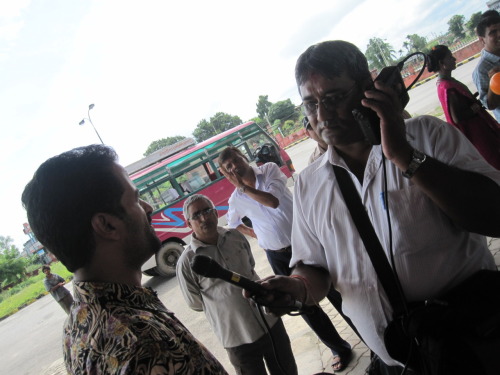
Sunil Babu Pant has been described as a gender minority rights activist, a GLBT activist, an openly gay politician, but it is also important to remember his is an elected member of parliament in Nepal. His center for GLBT people in Nepal still needs funds so it can be completed. Think you can help? Let us know… Here he is talking to the BBC. Meeting him was one of the more rewarding aspects of my volunteer mandate in Nepal. Please consider inviting him to speak to your community. Thanks,
Activists march in Nepal for Gay, Lesbian, Transgender...
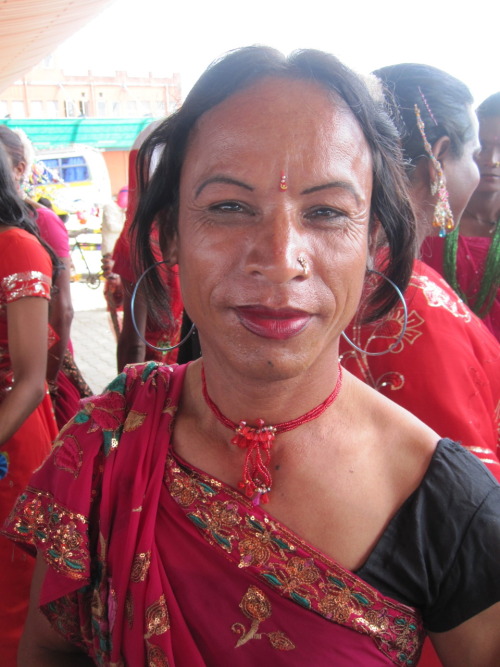
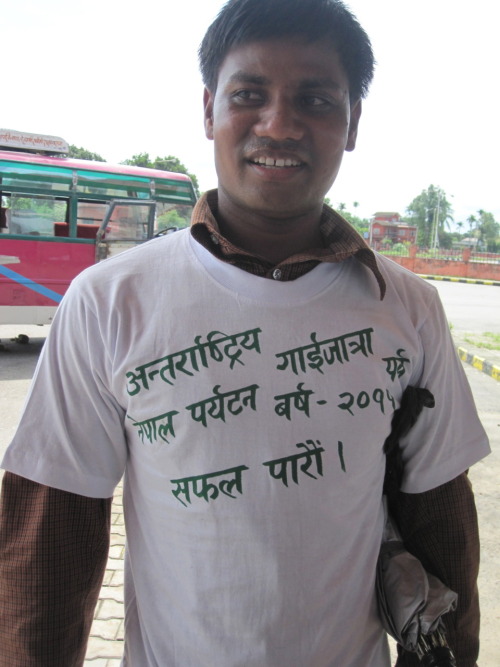
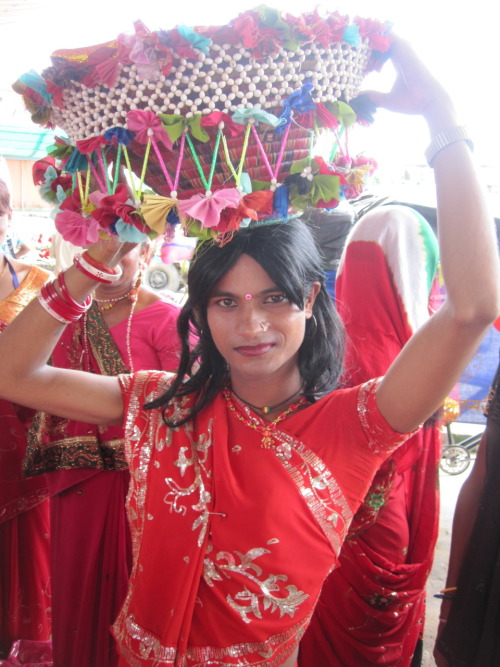
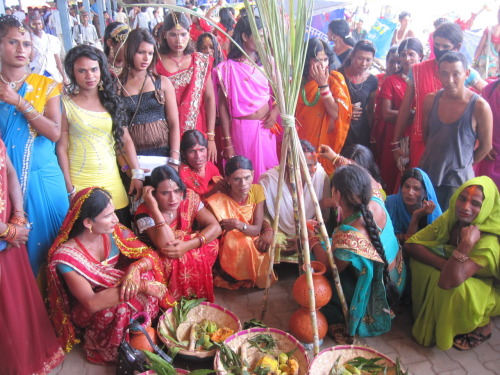
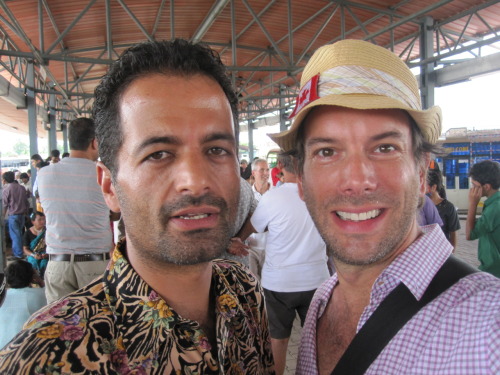
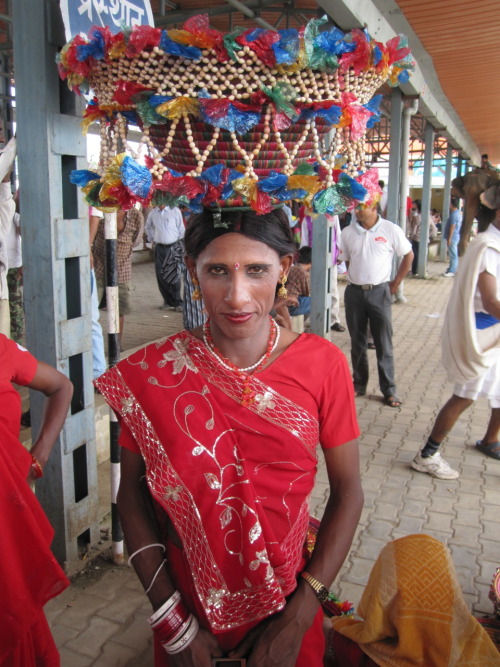
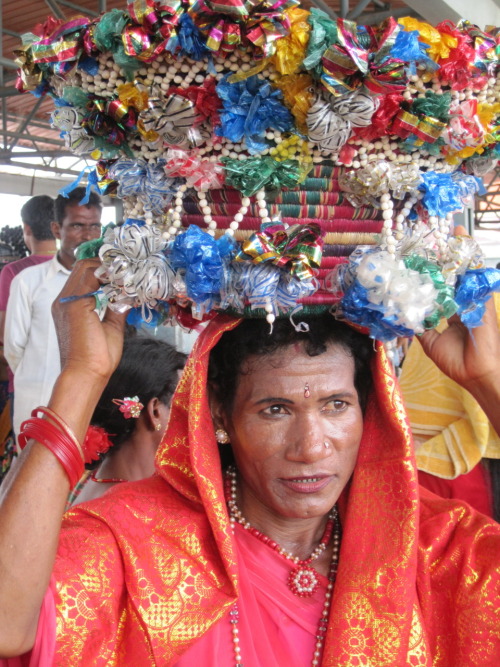
Activists march in Nepal for Gay, Lesbian, Transgender Equality!
Gay, lesbian, bisexual, transgender, and intersexed people have equal rights under the law in Nepal thanks to legislation written by the Honorable Sunil Pan. Member of Parliament Sunil Pant invited me to attend Nepal’s Gay Pride Celebration on August 15th, 2011. This year it was taking place outside of Kathmandu in the town of Narayanghat. I wish I could have spent the entire day with the group of activists. I was impressed by the number of transgender people. “The activists gathered to remind law and policy makers to include gay and lesbian provisions in the country’s new constitution, which is in the process of being drafted. “We want spread awareness among the people in the rural areas too. People in the capital mostly accept the idea but we need to spread the awareness,” Pant told the BBC” Pink Pages (Aug. 15th 2011).
One part of my mandate was to “promote equality between women and men.” Based on my experiences in Nepal and learning from the Honorable Sunil Pant, I urge Canadian International Development Aid organizations to reconsider how they define gender equality.
On a related note: When census gatherers went door-to-door visiting 5.6 million households across Nepal this month, they collected information not only on the country’s men and women, but also on a so-called third gender.
http://edition.cnn.com/2011/WORLD/asiapcf/05/31/nepal.census.gender/index.html?hpt=T2
Bonding with my elephant after a ride through the jungle. It was...
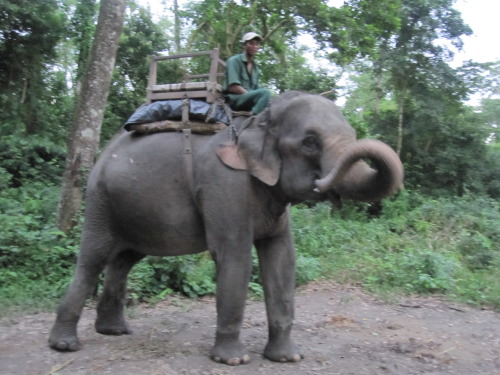
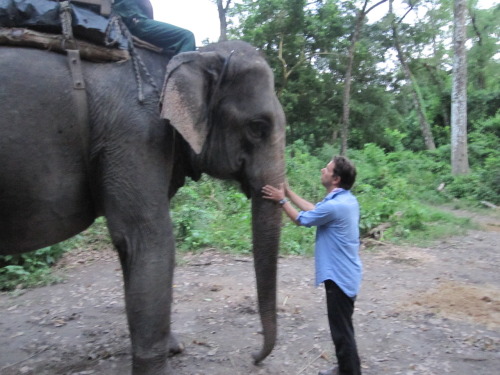


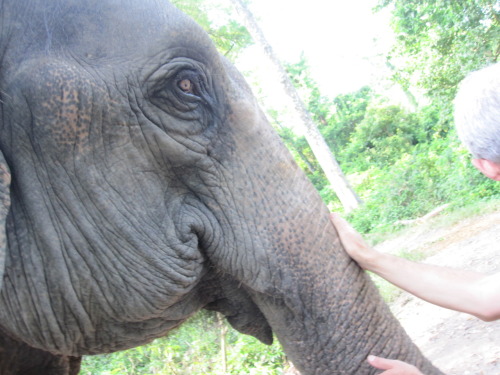
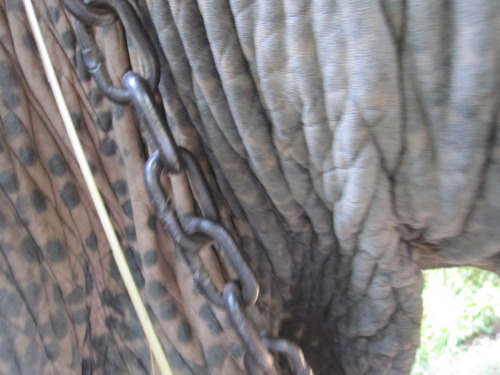

Bonding with my elephant after a ride through the jungle. It was amazing to get out of Kathmandu and see a bit of the country of Nepal.



